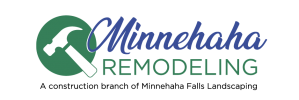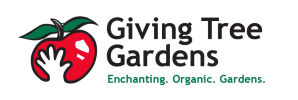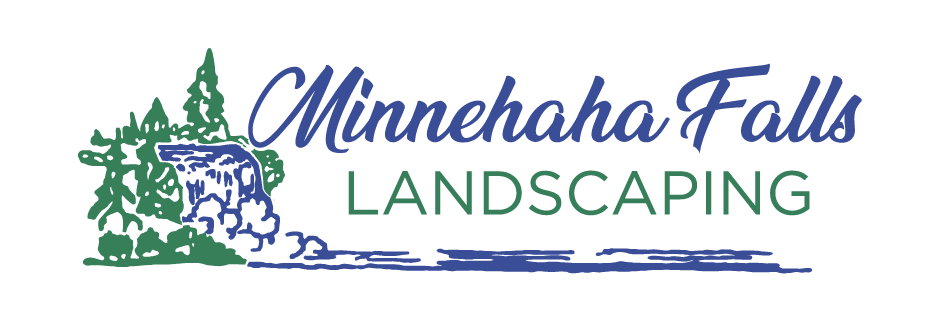A New Organic Lawn for Hopkins School District
Minnehaha Falls Landscaping Steps In
When District Maintenance Supervisor Kevin Neuman received requests from neighbors to invest in pesticide-free lawn care, he opened himself and the district up to an experiment to see if two goals could be accomplished: a healthier, thicker lawn and the elimination of potentially dangerous herbicides on campus.
“We don’t shy away from trying something new if we have reason to believe the experiment might be good for the school and neighbors,” Neuman explained. “When a neighbor approached us and asked us to eliminate the herbicides that were being used on-site, we decided it was an opportunity to improve our lawn’s appearance and functionality too.”
Three years into a four-year transition and the results of this organic lawn care experiment are really showing. What was a giant patch of dirt in the middle of a baseball outfield in the schoolyard is now bright green turf. Where the lawn was thin and weedy, the turf is now thick and lush. Weeds in the parking lot and playgrounds have vanished, and all of this without the use of any synthetic herbicides or fertilizers.
Our Proven Approach to Creating a Pesticide-Free Zone
To begin the process of transitioning to a pesticide-free lawn, we start with soil health. Our approach brings soil back to life by systematically regrowing fungi, bacteria, nematodes, and a whole menagerie of soil microbes. Our organic training teaches that lawns need certain levels of each microbial community to receive nutrients from the soil. As microbes eat organic matter and one another in the soil profile, nutrients are released that feed grass and other plants.
Dialing the right level of nutrient availability is made easier through microscopes and Dr. Elaine Ingham’s soil analysis method. Minnehaha Falls Landscaping Owner Russ Henry trained directly under Dr. Ingham for three years to learn how to manage soil microbial communities for the health and abundance of many crops, including turf.
We can improve soil health through aeration, overseeding, and the addition of liquid compost and organic fertilizer for lawns. Then, we can track our progress toward healthier soil by using microscopes. Instead of the typical herbicides to control weeds in the parking lots and playgrounds, we transitioned the school to a solution of store-bought vinegar, table salt, and dish soap. This non-toxic blend works perfectly for eliminating weeds on hard surfaces like playgrounds, while also being a more cost-effective alternative.
“Minnehaha Falls Landscaping is a good working partner, so we were willing to extend some amount of trust to see if we could reduce or eliminate synthetics and improve outcomes in our lawns and landscape over time. After three years of transition, we feel our lawn is well on its way to being a more usable and resilient space for students,” Kevin explained as we looked at the before and after pictures of the site. “You can see the difference.”
Being backed up by decades of organic soil health management science is critical to our success at Glen Lake Elementary. From the genetics of our seed choices to dialing in the quantity of nitrogen and other nutrients required to keep the turf healthy through the season to feeding soil microbes so that they can make food for plants, every component of our lawn plan for the elementary school has been developed and tracked using the proven soil and turf science methods that we trained in.
More Sustainable Than the Competition
Most landscape companies don’t take the time to become educated in organic methods because it is far too easy and profitable to simply spray poisons at your problems. At Minnehaha Falls Landscaping, we understand that health is our clients’ first wealth and that our strategies can positively impact their physical and emotional well-being. It took years of education and training to learn how to manage high-traffic lawns without using herbicides, but talking with Kevin and folks like him, we know it’s worth it.
“Our lawn functions better, it feels better, and we anticipate that since the transition to organic is mostly complete, we will soon start to save money over pre-transition maintenance budgets,” added Kevin.
There’s nothing better than a happy client who is saving money by choosing our organic services.
Stronger and Safer Yards for All
Every child deserves a safe, pesticide-free play space. Minnehaha Falls Landscaping is ready to help schools, parks, daycares, and parents transition their turf management practices to organic to grow stronger lawns that protect kids!
If you’d like to talk to our team about creating a sustainable, pesticide-free zone in your area, please fill out the form below.
"*" indicates required fields

As the education and advocacy branch, we work with community partners to create safe places for our pollinators, one garden, yard, business, school, church, conversation at a time. We know that together, we can build the buzz!

As the construction branch of Minnehaha Falls Landscaping, we build outdoor decks, steps, railings, pergolas, fences, and planters. When it gets colder, we step inside to remodel living spaces with creativity and craftsmanship, including cabinetry.

As the gardening branch, we work within your landscape to grow plants, flowers, shrubs and woodland gardens that are beautiful, restorative, and safe for birds, people, pets, and pollinators. We also install bee-friendly lawns and do spring and fall clean-up.
"*" indicates required fields
Let's Talk!
Call us at 612-724-5454 to see what is possible with landscape design and construction, organic gardening, and indoor remodeling.


